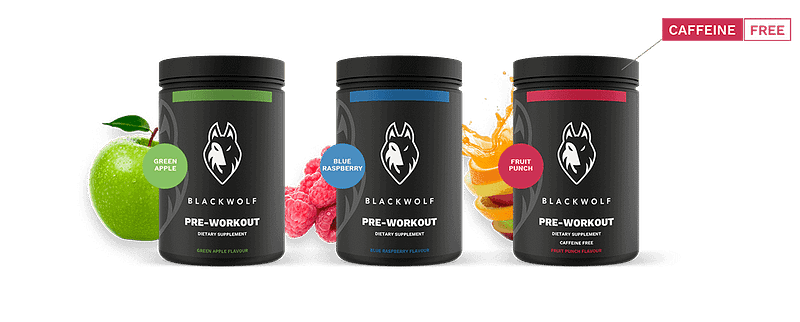Timing is Key: When to Eat Before Your Workout

You’ve set your fitness goals, created the ideal exercise routine, and now it’s time to zero in on another vital aspect of your wellness journey- your pre-workout nourishment. While the types of food you eat are essential, the timing of your pre-workout meal can significantly impact your energy levels, performance, and overall workout experience. Let’s delve into the complexities of when to eat before you workout to maximize those gains.
Understanding the Basics: Why Pre-Workout Nutrition Matters
Before we explore the ideal timing, let’s grasp why pre-workout nutrition is pivotal. When you consume food prior to working out, you provide your body with the essential fuel it needs to power through the exercise. This fuel comes in the form of carbohydrates, which your body converts into glucose for energy. Additionally, including a moderate amount of protein can help with muscle protein synthesis, supporting muscle growth and repair.
Timing Considerations: How Long Before Your Workout Should You Eat?
1 to 2 Hours Prior: A Balanced Meal:
Aim for a balanced meal containing carbs, proteins, and healthy fats.
Carbohydrates s provide a readily accessible source of energy, while protein supports muscle function and repair.
Examples: Grilled chicken with quinoa and vegetables, or a turkey sandwich on whole-grain bread.
30 to 60 minutes Prior to: Snack Time:
Opt for a more smaller, easily digestible snack that emphasizes carbohydrates.
Consuming protein is still beneficial but in a more smaller amount to prevent stomach related discomfort.
Examples: Greek yogurt with berries, a banana with almond butter, or a granola bar.
10 to 30 Minutes Prior: Quick Fuel:
Focus on easily digestible carbohydrates to provide a quick boost of energy.
Stay away from heavy proteins and fats to prevent digestive issues during exercising.
Examples: A piece of fruit, like an apple or a small bunch of grapes.
Factors Influencing Timing: Individual Variations
While these basic guidelines provide a starting point, individual factors play a significant role in deciding the ideal timing for your pre-workout meal:
Digestive Sensitivity:
A few individuals might encounter discomfort with a full meal close to their workout. Experiment with various timings to find what works out best for you.
Individual Energy Levels:
Pay attention to how your body responds at different times. Some individuals might feel more energized with a meal 1–2 hours prior, while others might prefer a smaller snack closer to the workout.
Type and Intensity of the Exercise:
The intensity and type of exercise can impact your nutritional requirements. For longer, more intense sessions, an well-balanced meal two or three hours before may be more beneficial.
Selecting the Right Food varieties: What to Include in Your Pre-Workout Meal

Carbohydrates:
Complex carbs provide a sustained release of energy. Include sources like whole grains, fruits and vegetables.
Proteins:
Lean proteins support muscle function and repair. Opt for sources like chicken, fish, beans, or dairy.
Fats:
While fats are essential for general wellbeing, consuming large sums just before an exercise can lead to uneasiness. Include small amounts of healthy fats such as avocados or nuts.
Hydration:
Remember to hydrate! Lack of hydration can negatively impact performance. Consume water over the course of the day and consider sipping on it during your workout.
Adjusting to Morning Exercises: The Breakfast Dilemma

For those who prefer morning workouts, the timing of your first meal of the day becomes crucial. While it probably won’t be practical to eat a full meal an hour before sunrise, consider these options
Night Before:
Have a balanced supper the night before, emphasizing carbohydrates, proteins, and fats.
Early Snack:
Consume a small, easily digestible snack 30–60 minutes prior to your workout. This could be a banana with a spoonful of almond butter or a yogurt parfait.
Post-Workout Nutrition: Closing the Nutritional Loop
Just as pre-workout nutrition is fundamental, what you eat after your workout adds to the recovery and muscle development phase. Aim for a combination of carbs and proteins to replenish glycogen stores and support muscle repair. A post-workout snack or meal within an hour of exercising is perfect.
Pay Attention to Your Body: A Ultimate Guide
While general guidelines can provide a framework, the ultimate guide to pre-workout nutrition is paying attention to your body and how it responds. Experiment with various timings, meal sizes, and compositions to understand what enhances your performance without causing discomfort. Pay attention how your body responds to various foods and adjust as needs be.
All in all: Optimize Your Workouts with Strategic Nutrition
Timing your pre-workout meal is a science, but it’s also an art. By understanding the fundamentals, considering individual factors, and choosing the right foods, you can enhance your workouts and elevate your fitness journey. Whether you’re a morning champion or a night enthusiast, key pre-workout sustenance can be the key to unlocking your full potential. Keep in mind, the best plan is the one that aligns with your body and supports your unique fitness goals.
Click Here for Good, Clean Workout Fuel. Without The Crash.

Click Here for Product Review
Click Here Simplify your Meals with Delicious Smoothie Recipes

Comments
Post a Comment